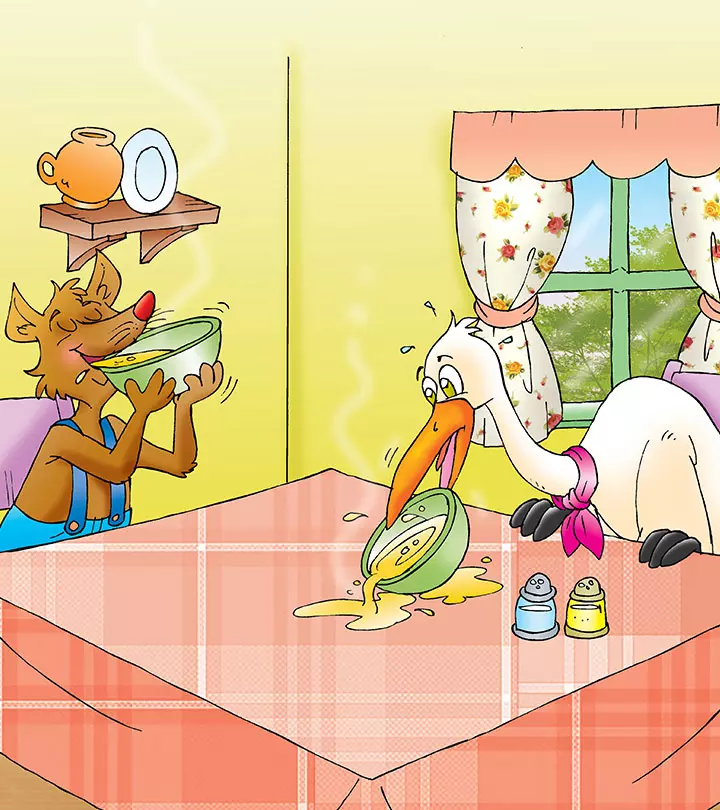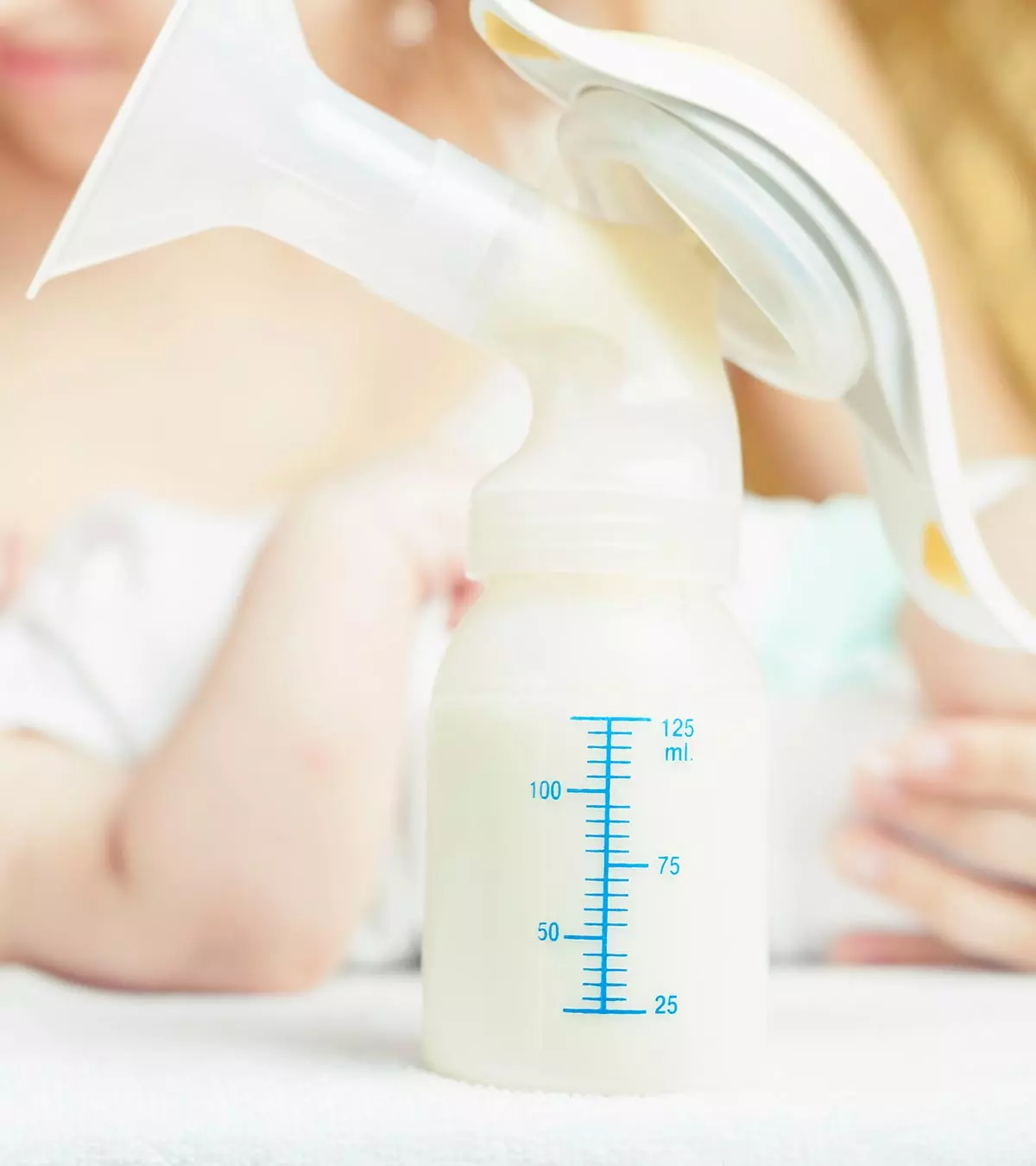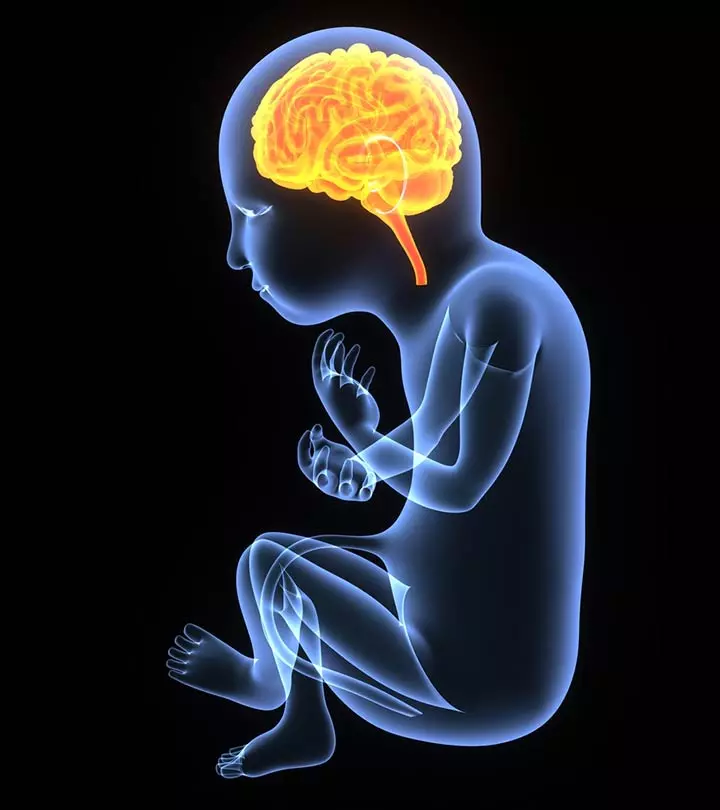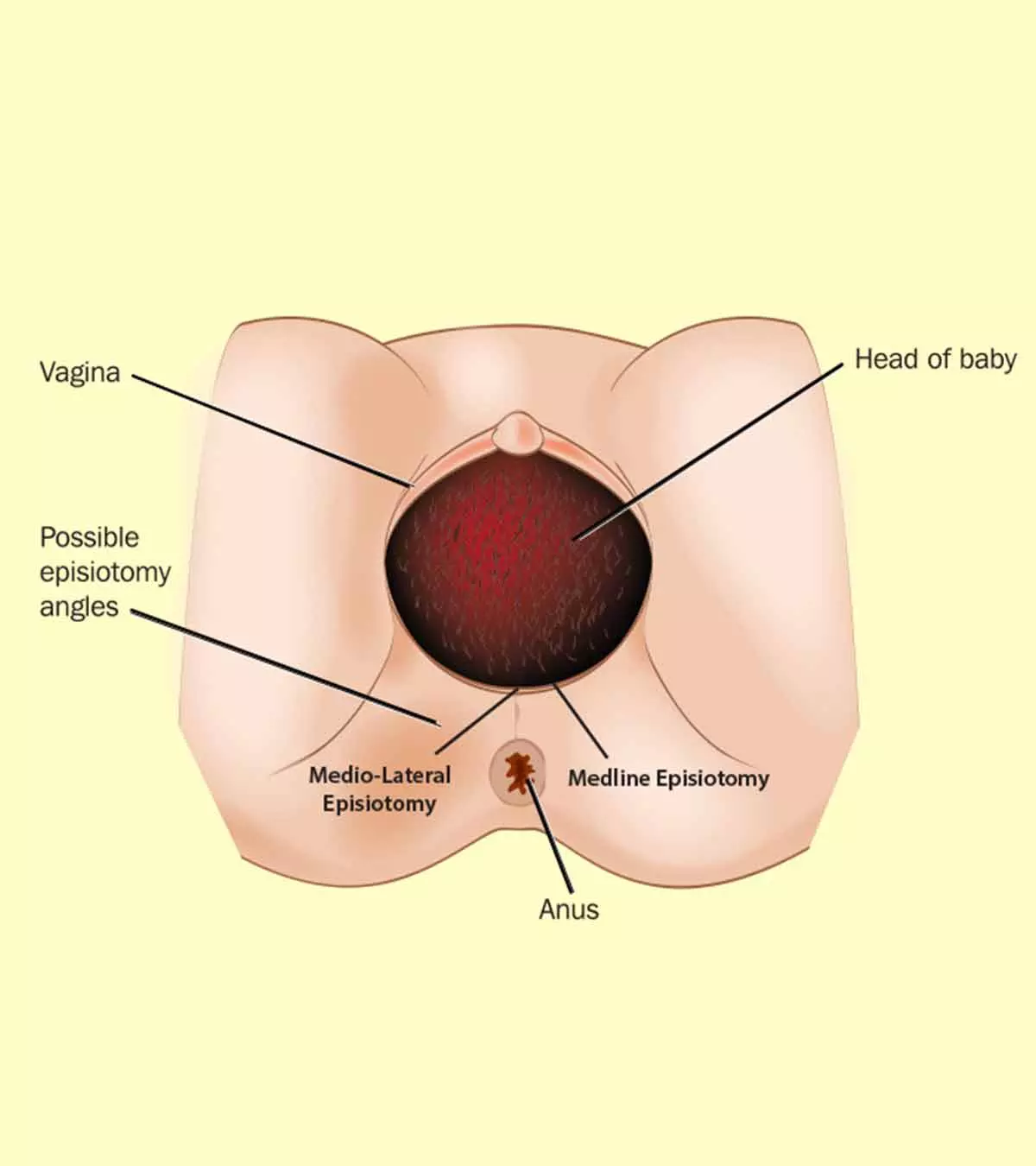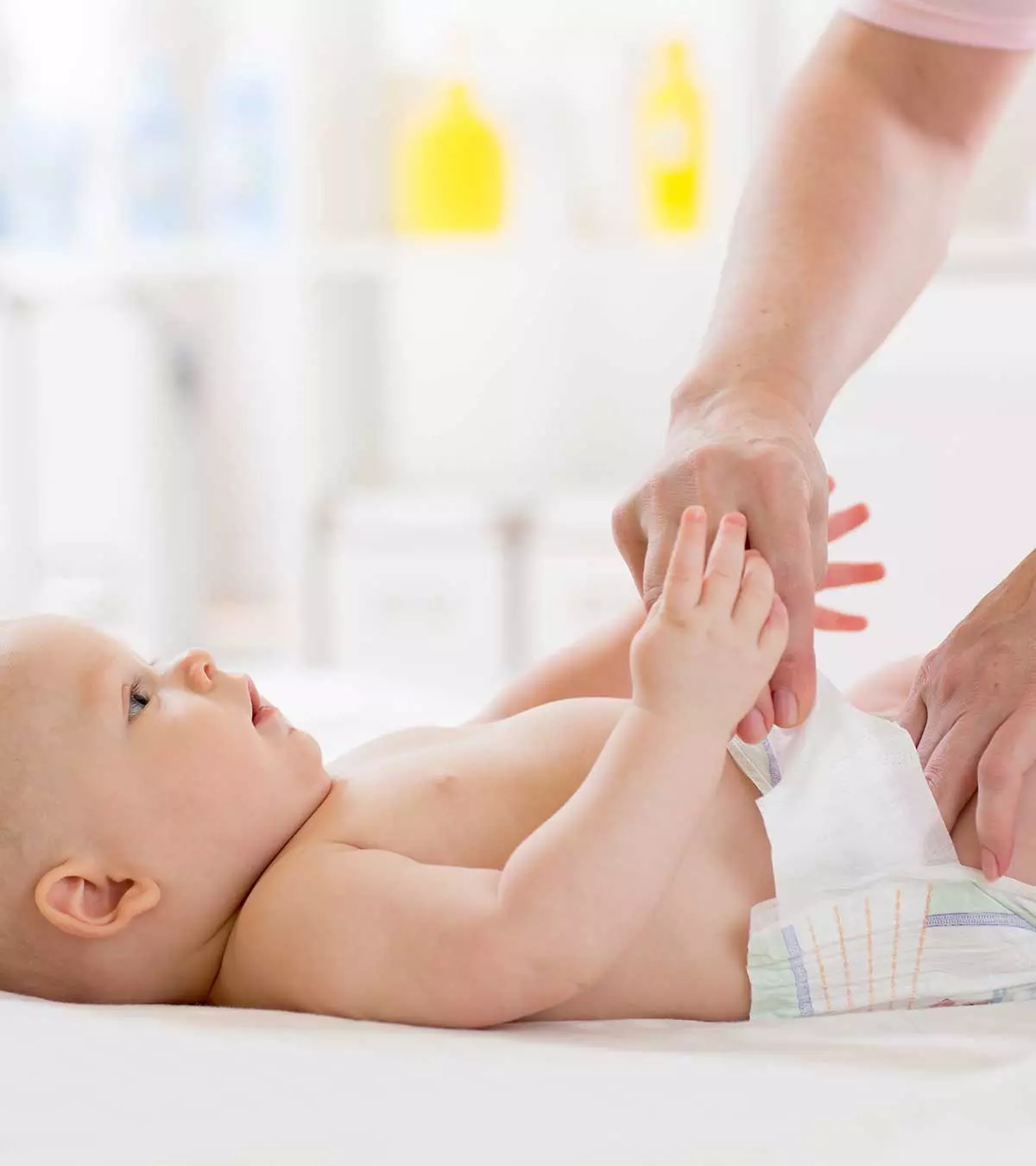

Image: Shutterstock
Diarrhea in babies is a condition with the potential to cause severe complications such as electrolyte loss and dehydration. Several factors and conditions can lead to diarrhea in infants, and most cases may be preventable. Medications may help, but home remedies may come to the rescue as well.
Read this post to know the best home remedies for diarrhea in babies and tips on using them.
Diarrhea In Babies And Toddlers
Rotavirus is the leading cause of diarrhea in infants and toddlers across the world (1). The virus spreads through contaminated food and water. Babies who do not have solid food or water can get the virus when they touch contaminated surfaces and put the same hand in the mouth. The fecal-oral route is the primary mode of transmission of the virus.
Best Home Remedies For Diarrhea (Loose Motions) In Babies And Toddlers
Some home remedies work for all babies and toddlers while some are suitable for younger ones.
1. Breast milk
Age:
Suitable for babies and toddlers of all ages
Breastfeeding protects the baby from several illnesses, including diarrhea. Breast milk is rich in antibodies that help keep the baby’s immune system robust, thus minimizing the risk of infections that can cause diarrhea. Medical experts state that babies who are breastfed are at a lower risk of diarrhea in infancy (2).
If your baby has diarrhea already, continue with the breastfeeding and breastfeed more frequently. Breastfeeding is widely recommended during epidemics and natural disasters to decrease the risk of infections, including those that can cause diarrhea (3).
Breast milk should be the exclusive food for the baby till the age of six months and breastfeeding should continue till the first birthday. The World Health Organization recommends breastfeeding up to the age of two years and even beyond, which means you can breastfeed toddlers (4).
2. ORS
Age:
Suitable for babies and toddlers of all ages
Infants below the age of six months can stay hydrated by breast milk alone when they have diarrhea (5). But you can give Oral Rehydration Solution (ORS) to infants younger than six months, after doctor consultation. You can buy ORS salts and prepare the solution in boiled and cooled water or purchase pre-made ORS.
According to the World Health Organization, the quantity of ORS liquid needed depends on the weight of the infant. Multiply the infant/toddler’s weight in kilograms with 75 to arrive at the ideal amount of ORS in milliliters (ml), and feed over four hours (6). If your baby’s doctor recommends different quantities of ORS, then follow the prescription. Always use a clean spoon or a dropper to feed the ORS to the baby in small sips, with sufficient pauses in between.
3. Bananas
Age:
Six months and above
You can give your baby banana once they attain the age of six months (7). Banana is part of the BRAT (banana, rice, applesauce, toast) diet that is often recommended to alleviate diarrhea among babies and toddlers. You can mash ripe bananas and feed in small bites to the baby. Bananas can provide energy to the babies who may be weak due to diarrhea. The fruit replenishes potassium, which is lost by the body during diarrhea (8).
4. Rice
Age:
Six months and above
Rice is one of the first solid foods for a baby (9). Since it is a starchy grain, rice is easy to digest (10). You can give your baby rice cereal made with water instead of formula thus making it easy to digest. Puffed rice soaked in water also makes an ideal alternative. Make sure the puffed rice and rice cereal do not have any other added ingredients. Mashed boiled rice is also an excellent choice. Evidence suggests that giving rice in combination with banana can help relieve diarrhea (11).
5. Applesauce
Age:
Six months and above
Applesauce can help the body retain liquids and decrease fluid levels in the stools. The fluid retention property of applesauce can cause constipation when given in large quantities. However, this can be an advantage when your baby has diarrhea and loose stools.
6. Baby cereals
Age:
Six months and above
Cereals made for infants and toddlers are easy to digest. Most infant cereals contain added nutrients, which help the baby stay nourished during diarrhea. Pick cereals that have low fiber since it helps make the stools firmer.
7. Potatoes
Age:
Six months and above
Just like rice, potatoes are rich in starch and easy to digest. Starch from potatoes can provide essential glucose that helps keep the intestine healthy, especially during diarrhea (12). Potatoes are also rich in potassium, which is an electrolyte lost during diarrhea. Peel the skin of potatoes and boil them. Mash the potatoes before giving it to the baby.
8. Toasts
Age:
One year and above
Toasted white bread is rich in starch and low in fiber, which makes it easy to digest. Toast the bread lightly and give it with other foods such as applesauce and mashed bananas. Give only plain white bread and not milk bread or multigrain bread.
9. Ginger
Age:
12 months and above
Some research suggests that ginger may provide relief from diarrhea when it is caused by bacteria such as the E.coli (13). You can boil some pieces of ginger in water, and give the water to the baby in small sips. Keep the quantity of the liquid to a few teaspoons a day. It is best to employ this home remedy for loose motions along with other home remedies.
10. Coconut water
Age:
Six months and above
Coconut water contains adequate quantities of potassium and sodium, the electrolytes lost during diarrhea. Give small sips of coconut water to the baby after a bout of loose motions. It can help replenish the lost electrolytes (14).
11. Yogurt:
Age:
8 months and above
Once your baby is eight months old, you can give them plain yogurt (15). Yogurt is a probiotic containing several healthy bacteria that the body may lose due to constant diarrhea. Give plain, whipped yogurt to your baby, which is easy for the baby to swallow. It is best to give homemade yogurt. In case of packaged yogurt, pick one with no added sugar, salt, flavoring or preservatives.
Following a few tips, while using these home remedies, can help the baby get better sooner.
Tips For Using Home Remedies For Diarrhea
- Check how the baby reacts: If your baby is less than a year old, be more watchful for any signs of allergies while introducing new foods as home remedies. If your baby develops abdominal discomfort, rashes, or swelling after eating certain foods, then stop giving a home remedy immediately.
- Moderation is essential: Do not give any food in excess, even if only as a remedy. Maintain a balance across and give as recommended for the best results.
- Stick to doctor’s advice: If your doctor suggests against the use of a home remedy, suggests an alternative remedy, or prescribes a medicine, then adhere to it.
Frequently Asked Questions
1. How long does diarrhea last for a baby?
Diarrhea in babies usually lasts for two to three days but may also extend upto two weeks depending on the type (16) (17).
2. When should I worry about my baby’s diarrhea?
You should consult your pediatrician if diarrhea persists for more than three days, accompanied by vomiting, bloody stool, stomach ache, and frequent stool passing more than eight times in eight hours (16).
3. Does baby diarrhea go away on its own?
Diarrhea in babies is commonly caused by viruses and can go away on its own within a few days (16). However, if the condition is the same for more than three days, then you should consult your doctor.
4. What does diarrhea in babies look like?
Common signs of diarrhea include (18):
- Frequent watery stool
- Dark yellow colored urine in case of dehydration
- Fever
- Low appetite
Although medications can help cure diarrhea in babies, home remedies are the best approach to regulate an infant’s diarrhea because they are natural and easily available. While frequent breastfeeding is usually recommended to treat diarrhea in babies under the age of six months, home remedies for infants older than six months may include the BRAT (banana, rice, applesauce, toast) diet in mashed form, baby cereals, and ORS combined with frequent breastfeeding. However, when introducing new foods as home cures, be cautious and monitor your baby’s reaction. If there is no improvement after a day or two, consult a doctor.
Key Pointers
- Frequent breastfeeding is helpful to treat diarrhea in babies.
- Give Oral Rehydration Solution (ORS) to infants under six months upon doctor consultation.
- Cooked rice and boiled potatoes are some remedies for diarrhea in babies.
- If your baby is less than one year, watch for any signs of allergies while introducing new foods as home remedies.
References
1. Rotavirus; World Health Organization
2. Breastfeeding vs. Formula Feeding; Brenner Children’s Hospital
3. Making the decision to breastfeed; U.S. Department of Health & Human Services
4. Breastfeeding; World Health Organization
5. Treating Dehydration with Electrolyte Solution; American Academy of Pediatrics
6. Integrated Management of Childhood Illness; World Health Organization
7. Starting Solid Foods; Benioff Children’s Hospital
8. Mom’s Advice Is Still the Best for Treating Diarrhea; Cleveland Clinic
9. Starting Solid Foods; American Academy of Pediatrics
10. Diarrhea; St. Louis Children’s Hospital
11. The BRAT Diet for Acute Diarrhea in Children: Should It Be Used?; University of Virginia
12. Casburn-Jones & Farthing, Management of infectious diarrhoea; National Center for Biotechnology Information
13. Chen et al., Ginger and Its Bioactive Component Inhibit Enterotoxigenic Escherichia coli Heat-Labile Enterotoxin-Induced Diarrhea in Mice; Journal of Agricultural and Food Chemistry
14. Diarrhea; Columbia University Medical Center
15. Feeding Guide for the First Year; Stanford Children’s Health
16. Diarrhea in infants; Medline Plus
17. Diarrhea and your child; American Academy of Pediatrics
18. Diarrhea; Seattle Children’s Hospital
Community Experiences
Join the conversation and become a part of our nurturing community! Share your stories, experiences, and insights to connect with fellow parents.
Read full bio of Dr. Nikolina Zdraveska
Read full bio of Rohit Garoo





